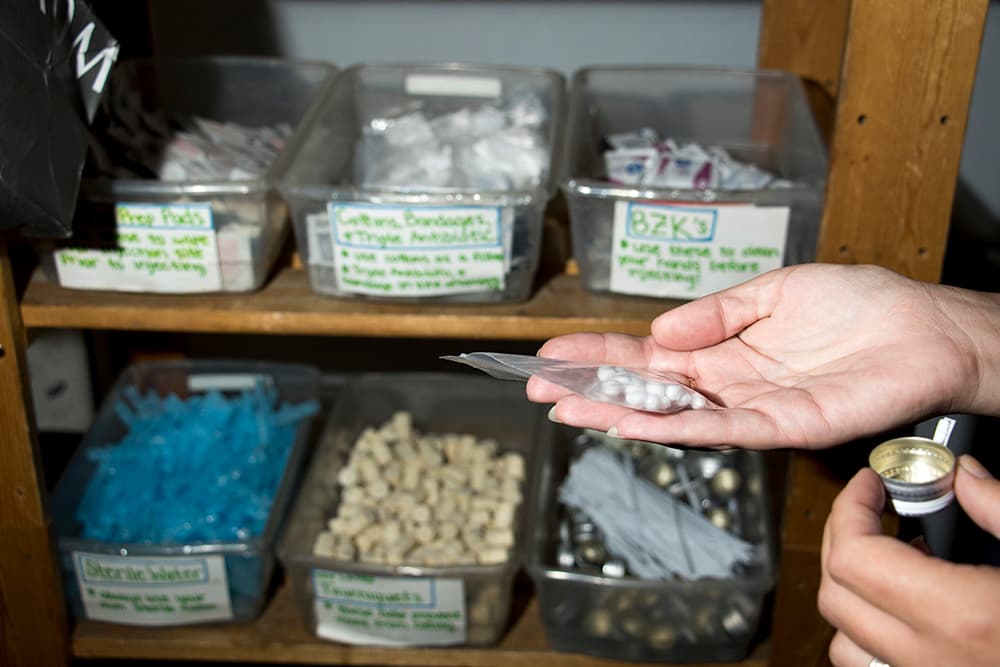The United States Attorney's Office for Colorado came out swinging against Denver's plan to allow a supervised use site where people can use heroin and other drugs with medical professionals present to intervene in the case of overdoses.
Comparing them to "crack houses," the joint statement between the attorney's office and the Denver field office of the Drug Enforcement Administration on Tuesday said the sites don't actually reduce the number of drug-related deaths. They said such a site is illegal under federal law and could result in penalties including forfeiture of the property, criminal fines and imprisonment.
Denver City Council voted 12-1 last month to allow a supervised drug use site in the city for two years as a part of a pilot program. It will be happen only if the state's General Assembly passes complementary legislation authorizing the site.
The release said the two federal agencies support methods "addressing the opioid and methamphetamine crisis in Colorado," but they must comply with federal law.
The release cited a supervised drug use facility in Vancouver, claiming that the overdose death rate in "the immediate vicinity of the facility was actually the highest in the city." The release said that while such sites are considered safe because they're stocked with opioid overdose antidotes like naloxone, they're not usually limited to opioid users. (Denver's site would be available for other drug use.) The feds said people may use substances that don't have antidotes like naloxone.
The feds also suggested the facility could increase public safety risks.
"Just like so-called crack houses, these facilities will attract drug dealers, sexual predators, and other criminals, ultimately destroying the surrounding community," the release said. "More importantly, the government-sanctioned operation of these facilities serves only to normalize serious drug usage -- teaching adults and children alike that so-called 'safe' drug usage is somehow appropriate or can actually be done 'safely.'"
Councilman Albus Brooks, the bill's sponsor, issued his own statement in response to Tuesday's statement from the feds. He started by mentioning the more than 1,000 people who died from drug overdoses in Colorado last year.
Denver had 201 fatal drug overdoses in 2017, a record for the city.
"While we recognize the role of the federal government, we cannot wait for federal action while the death toll rises," Brooks said in his statement. "These people are not simply addicts. They are our neighbors, friends, and family members who are experiencing addiction. As a designated local public health department, the city through the Denver Department of Public Health and Environment has the authority under law to address and regulate this type of emergency."
Brooks said research and "global precedent" show supervised use sites can save lives.
"Choosing not to save the lives of our neighbors is an injustice that threatens to destabilize the very foundation of our society," Brooks said in the release. "This is a piece of a larger plan to address this epidemic, and as leaders we know that saving lives takes precedent over politics. Now is the time to act."
Mayor Michael Hancock backed up Brooks and called for the Federal government to catch up to local and state governments.
"Councilman Brooks' proposal for a safe use site pilot in Denver includes a public outreach and stakeholder process, and that's an important community conversation that needs to take place," Hancock said in a statement. "I look forward to it, as well as making sure that whatever next steps we take address the community's concerns and possible risks, and that we mitigate those as we face this public health emergency. The state legislature has a role to play in this, and the federal government also needs to take a more active role in helping cities and states meet this challenge."














